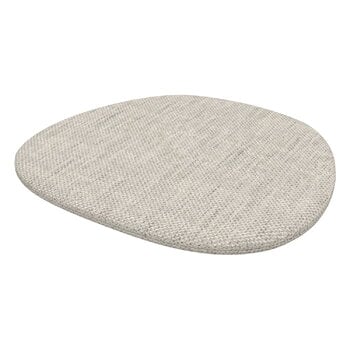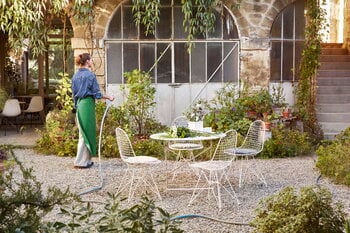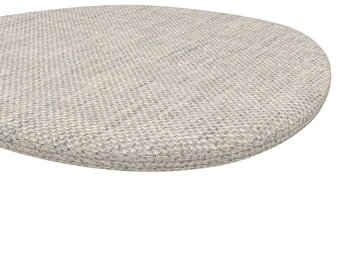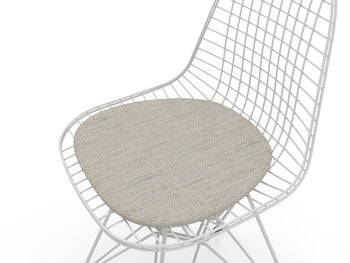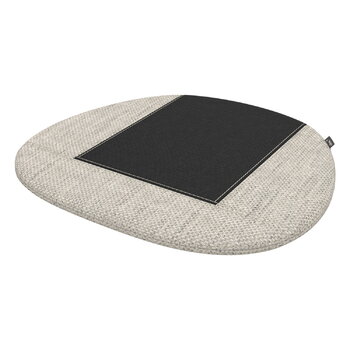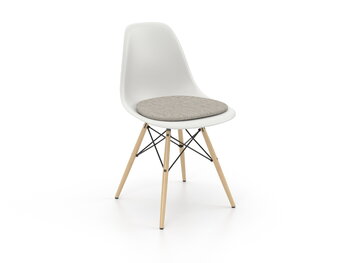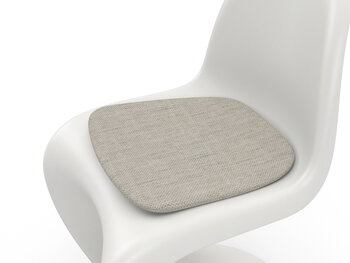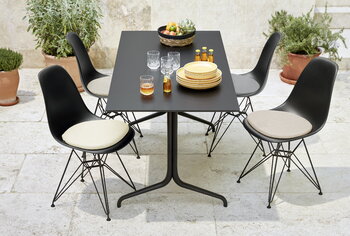Vitra’s Soft Seat cushions add comfort to unupholstered chairs – not to mention style! The padded seat cushion is made of thermopressed fleece that retains its shape even in heavy use. The material is also recyclable. The seat cushion has a practical antislip-coating on the underside and a zipper that allows for easy removal for cleaning or replacing it.
The Soft Seat cushions come in a variety of colour and upholstery options. This grey and beige cushion is upholstered with a high-quality fabric called Corsaro, which combines fine and coarse yarns to create a lively and vibrant yet sophisticated look. The wool blend cushion is best suited for home use.
The Soft Seat cushion type B has an organic, slightly rounded shape that fits the following Vitra chair models:
Eames side chair family
- E-VOC
- Panton
- Panton Classic
- HAL armchair
- HAL side chair family
